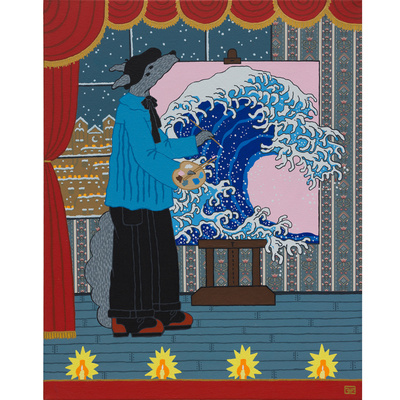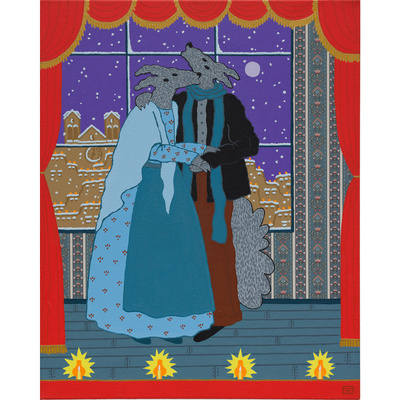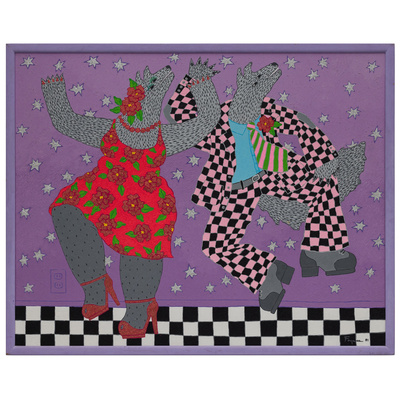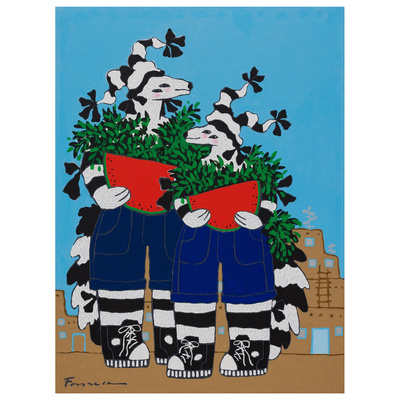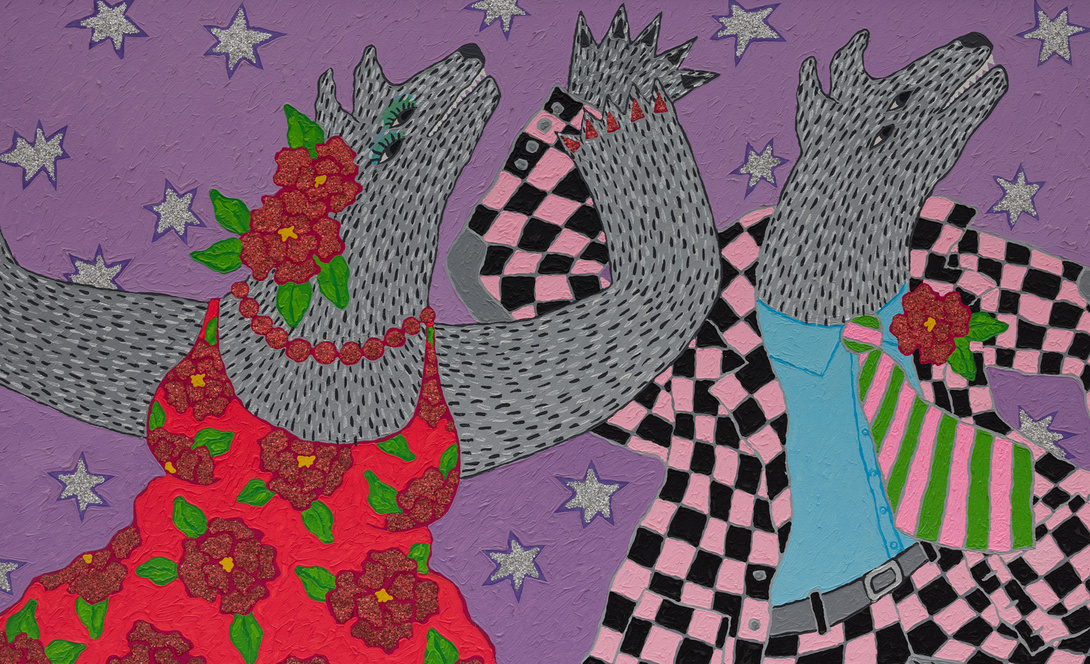
Harry Fonseca: Frieze Los Angeles 2024
“I don’t think that the Coyote mythology will ever dry up. It’s been around so long. It opens like a Pandora’s Box. I think I could keep it alive.. its that potent…He reminds me of those multi-faceted crystal balls hanging in the window. You see flashes, but you don’t know where they will take off to. I’ve been trying to get that to the core of my work.— Harry Fonseca to Abby Wasserman in Coyote and the Myth maker, 1987.
Harry Fonseca (Nisenan Maidu/ Portuguese/Hawaiian, 1946-2006) was born and raised in Sacramento and was an enrolled citizen of the Shingle Springs Band of Miwok Indians. He was influenced by the Maidu origin stories told to him by his uncle and Maidu Elder, Henry Azbill. In 1990, he moved to Santa Fe, where he lived until his death in 2006.
His retrospective Harry Fonseca: Coyote, A Myth in the Making, curated by Margaret Archuleta, traveled across the United States (1988-1989) including the Museum of Natural History, Los Angeles, Smithsonian Institution, Washington, D.C, Joslyn Art Museum, and Oakland Museum of California, amongst others. In 1999 he was a featured artist in Ceremonial, an official collateral exhibition of the 48th Venice Biennale organized by the Native American Arts Alliance along with Jaune Quick-To-See Smith and Kay WalkingStick.
He has had solo museum exhibitions at the Museum of the Plains Indian (1976), The Wheelwright Museum of the American Indian (1983 & 1996), Southwest Museum (1989), Santa Barbara Museum of Natural History (1990), The Crocker Museum (1992), The Wheelwright Museum of the American Indian (1996), The Oakland Museum of California (1998), The National Museum of the American Indian (2003), The Institute of American Indian Arts Museum (2004), The Emmanuel Gallery (2006), The Eiteljorg Museum (2018), amongst others. His most recent solo museum exhibition When Coyote Leaves the Res, was presented at the Autry Museum of the American West (2019).
Harry Fonseca, Marcello & the Red Sea (La Boheme, Act I), 1993. Mixed media on canvas. 30 x 24 inches.
